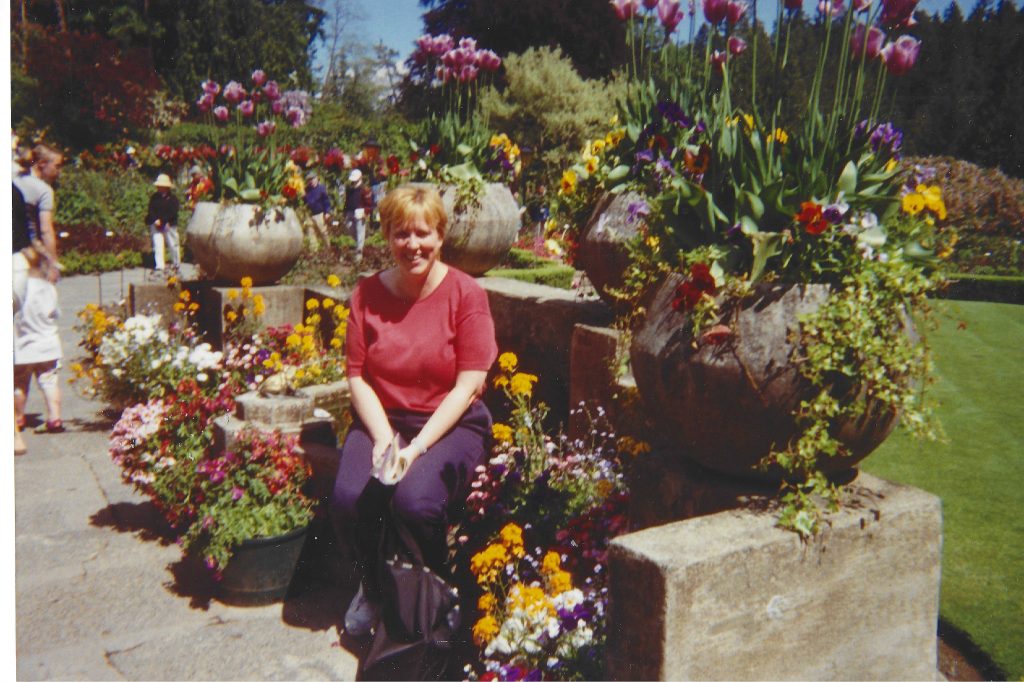-
Cancer
Paying it forward: Florida woman leads support group after CAR-T cell therapy
As the sun rises above the St. Johns River and casts a glow on the glass buildings of downtown Jacksonville, Florida, Ann Mackey returns from a walk with her dog Maggie and prepares to attend a book club discussion. It's moments like these she has come to truly appreciate after treatment for breast cancer and multiple myeloma.
Watch: Paying it forward: Florida woman leads support group after CAR-T cell therapy
"I have always said you have to know when to be happy, and for me right now, this is a time to be happy," says Ann.
In the 1990s, her career brought her to Jacksonville, Florida, and it wasn't long before she felt connected to the community. Between corporate work, Ann found opportunities to volunteer, make friends and immerse herself in history, culture and literature. In 1994, she sought care at Mayo Clinic in Florida.
"Ann has been a patient at Mayo Clinic for more than 25 years," says Dr. Sikander Ailawadhi, a Mayo Clinic hematologist and oncologist. "While it was initially taking care of her primary care needs through family medicine to getting diagnosed with multiple myeloma, receiving many, many treatments and having a diagnosis of breast cancer, getting treatment for that, then having progression of myeloma and going through chimeric antigen receptor-T (CAR-T) cell therapy."
The treatments have evolved much like the surroundings where she attends appointments.
"I feel like I watched Mayo Clinic grow because the first time I came here, there was a single building on campus, and everyone I saw was extraordinary," says Ann. "I've always felt like the physicians knew me. They knew me as Ann, and I was amazed that there was that level of connection with physicians at Mayo. As my needs over the years happened, the Mayo team, the Mayo staff, and the Mayo buildings have still been growing."

Ann was diagnosed and treated for breast cancer on three separate occasions. When a fellow working with her physician noticed an abnormality in her lab results, they investigated further, ultimately leading to a diagnosis of multiple myeloma.
"We are being able to see over our lifetimes how the management of patients is being transformed," says Dr. Ailawadhi. "It's that effort to keep trying to put our heads together and making sure that the needs of the patient are getting served, not just today, but tomorrow. And that kind of thought process of mapping the patient's journey and walking that journey with the patient, hand in hand, helps us come up with stories like Ann's, where over more than 25 years, we have been able to find answers for her."
Ann's care led her to join a multiple myeloma support group, which she now co-leads from the same building where she received treatment. The group offers comfort to those in treatment and remission as well as connection to subject matter experts to explain advances in multiple myeloma care.
"That sort of relentless curiosity, that drive to figure out what it is, what's going on — I think that saved my life," says Ann. "I had my CAR-T therapy in June of 2022, and since then, I have had no treatment. I'm cancer-free. It's undetectable now, so I'm very happy I get to keep enjoying life. It's amazing."
Not only is Ann involved in restoring a Jacksonville landmark, Memorial Park, but she is also looking forward to new travel adventures and opportunities in retirement.
Related:
- Mayo Clinic Minute: What is CAR-T cell therapy?
- John Cadwallader has hope, time and new options after CAR-T treatment for multiple myeloma
- 7 advances in CAR-T cell therapy at Mayo Clinic







